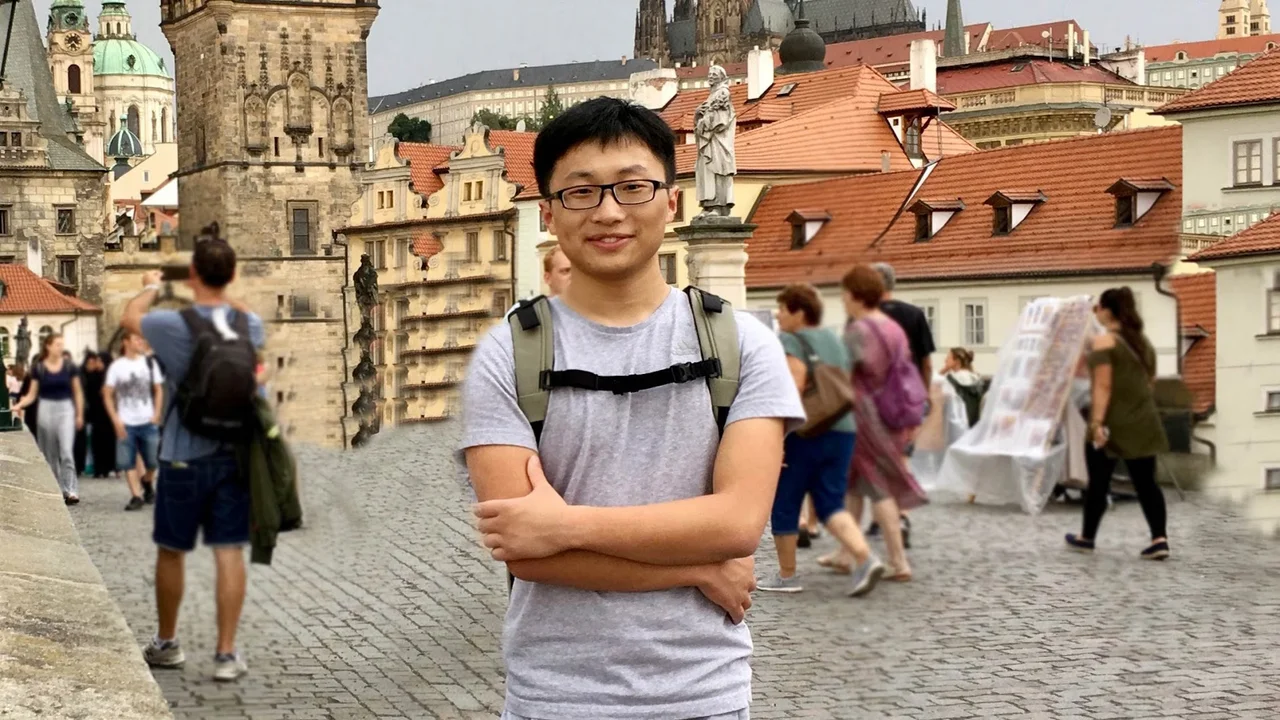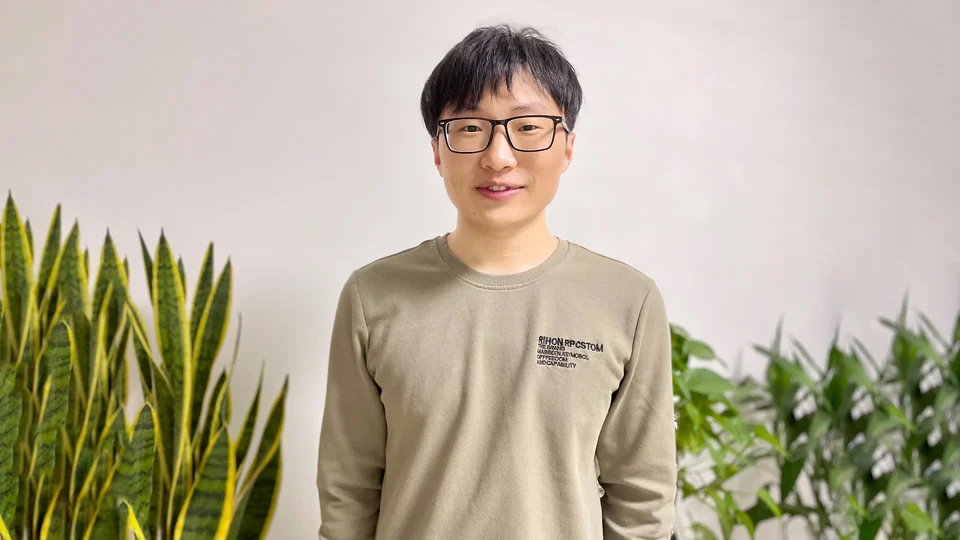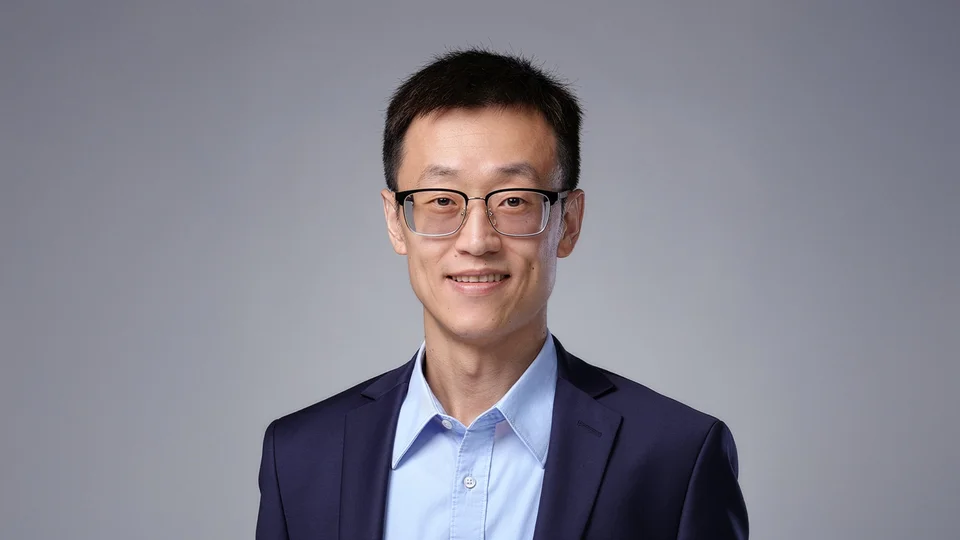
Talented KAUST Ph.D. student aims to revolutionize healthcare with machine learning
KAUST Ph.D. student, Yu Li, is a talented young computer scientist with an interest in developing novel computational methods and algorithms to solve and understand the principles behind the “bio-world.”
About
By David Murphy
KAUST Ph.D. student, Yu Li, is a talented young computer scientist with an interest in developing novel computational methods and algorithms to solve and understand the principles behind the “bio-world.”
The 25-year-old researcher has—despite a recent hiring freeze—interviewed with several leading U.S. universities for a faculty position, including Georgia Tech and Indiana University Bloomington. Massachusetts Institute of Technology has also approached Li for a postdoctoral fellow position, while The Chinese University of Hong Kong, City University of Hong Kong, and the Toyota Technological Institute at Chicago have reached out to him regarding a possible faculty position.
The in-demand student from Chuzhou, China, obtained his M.S. ('16, computer science) from KAUST and his B.S. ('15, biosciences) from the University of Science and Technology of China, respectively. During his time as a member of Professor Xin Gao’s Structural and Functional Bioinformatics (SFB) Group, Li's prodigious scholarly output has drawn his peers’ attention near and far. So far, Li, who defended his thesis this July, has authored or co-authored papers that have been published in 30 prominent peer-reviewed journals spread across the bioinformatics and machine learning (ML) community.
“At the beginning of my Ph.D. journey, Prof. Gao told me that the graduation criteria I must meet were to have my work featured in two top journal papers,” he noted. “I fulfilled that requirement by the end of 2017.”
“I believe that the main reason that Prof. Gao supports and invests in me—and why high caliber researchers will collaborate with me—is because I am talented, hard-working, motivated, and responsible. My motivation to work hard stems from my maxim for life: “'make a difference; make an impact; make history,'" Li emphasized.
Creating an impact at KAUST
After joining the University in 2015, Li quickly found that Professor Gao's words rang through regarding the potential to create an impact at KAUST and be part of a group of researchers striving to make history in the Kingdom’s newest “house of wisdom.”
“Two things attracted me about KAUST: first, Prof. Gao told me that we had many collaborations with wet labs, who can help us validate our predictions,” he stated. “Second, and in fact, the most important factor for joining was that Xin told me that, at KAUST, we had the potential to make and be part of history.
“I believe many factors have contributed to my success here: there's KAUST’s world-class computing facilities, the freedom to carry out ground-breaking computing research (which would be impossible elsewhere); supportive faculty; and an expansive network of quality local and international research collaborators. For me, KAUST has all the ingredients that a top university should possess,” he noted.
Machine learning and the future of healthcare
In a future where the deep fusion that exists between health informatics and ML can benefit the health of individuals, bioinformatics will stand out as an interdisciplinary field full of both challenges and opportunities. Developments in the field, such as ML-aided disease diagnosis and prognosis, point to a transformative revolution in the approach toward the study of the causation and mechanism of complex diseases.
Over the next five to ten years, Li wants to continue working in academia; more specifically, in areas where he can continue to push science boundaries. In the long term, he would like to investigate the paramount mutual possibilities that exist between industry and academia in pursuit of his goal to tailor his research to benefit as many people as possible.
“During COVID-19, people have understood the importance of health. Without our health, people cannot even go out of their house, let alone enjoy the convenience of new technologies. My ultimate goal is to develop transparent and explainable ML methods to improve the efficiency and outcomes of healthcare,” he said.
Due to its automaticity, high customization ability, and seamless application of artificial intelligence, machine learning has the power to become indispensable in our daily lives. However, according to Li, we sometimes may not be even aware of its existence, especially when it is combined with healthcare.
“Machine learning is truly changing our world. It makes our life more convenient, and many repetitive works can now be done by computers, without too much human interference. Many technologies related to ML, such as face recognition and autonomous driving, are shaping how our very world is structured and connected. Big data is also revolutionizing the healthcare field and improving healthcare outcomes, although the patients may not be aware of the technical details. Like Prof. Andrew Ng once said, “'AI is the new electricity.'”

